
by Mrs Jasmine Adaickalam (YSS)
1) INTRODUCTION
A series of working group discussions on Malaysian Indians and the Tenth Malaysia Plan was hosted by YB Dato SK Devamany, Deputy Minister in the Prime Minister’s Department at Putrajaya from August 24 to 26, 2009
These were organized and facilitated by Datuk Dr Denison Jayasooria (UKM Institute of Ethnic Studies) as commissioned by the Yayasan Strategik Sosial to receive input and feedback on the Ninth Malaysia Plan’s policies and programmes with a view to provide input to the Tenth Malaysia Plan.
A total of forty seven people participated over the three days with a minimum of fifteen people taking part in every working group session. The diverse participation from various sectors enhanced the quality of discussion and review.
2) REFLECTIONS ON 9th MP PROVISIONS
During the course of discussion a number of specific initiatives undertaken to address the Indian concerns were reflected upon. They are,
Government sponsored skills training opportunities provided to Indian youths through public training institutions such as the Industrial Training Institutes (ILP), Giat MARA, Industrial Youth training Institute (IKBN) and the EPU/MOF funded skills training opportunities, which were coordinated by YSS.
Entrepreneurship Training courses and micro-credit loans were provided to Indians through INSKEN and Yayasan Tekun respectively. These were also coordinated by YSS.
Micro credit loans are also being given to the urban poor especially women through Amanah Ikhtiar Malaysia (AIM), which is directly coordinated by AIM.
A special grant was allocated to YSS to undertake social programmes towards holistic development of educationally underachieving Indian youths. This is an on-going programme undertaken since June 2001 under the PINTAS project to address social ills among Indian youths.
A total of RM216.5million special grants were allocated for the infrastructure development of Tamil Schools especially those which are partially aided. This fund helped 200 over schools.
To address the low participation of Indians in equity and to enable them to take part in equity ownership, the government ensured that 15% of the shares in PNB be reserved for the Indian community.
The establishment of the Cabinet Committee on Indian Issues, which is chaired by none other than the Prime Minister himself to ensure participation of Indians in Government programs and projects with the secretariat at the Ministry of Human Resources is a key provision by the government.
3) REVIEW OF PROVISIONS & PROGRAMMES
During the course of the discussion over the three days a number of critical points were raised which require further clarification from the Federal Government especially the lead agencies such as the Economic Planning Unit (EPU) and the Implementation Coordination Unit (ICU) at the Prime Minister’s Department.
They are,
• Indian concerns are looked as individual community concerns rather than addressing them as national concerns
• There is a tremendous distrust of official statistics and official figures cited in government strategy documents such as 9th MP and MTR of the 9th MP
• Another grievance raised was that the programme outreach is too small, not comprehensive or holistic in nature and the outcomes and the follow-through is weak.
• Social awareness and social preparation is extremely weak to plug into the system
• Access issues due to under/un informed front desk official or an insensitive or unfriendly public official hinders the active community participation in government programmes.
• Major concerns in the areas of coordination, delivery and implementation had been highlighted.
4) RECOMMENDATIONS
4.1 Poverty & Social Ills
Lack of documentation and statelessness, increasing involvement into crime and violence and the issues of single mothers headed households, low and poor income families were highlighted to be some of the key issues under this theme. It was concurred that a major target group identification exercise and a designing of a comprehensive and holistic strategy with appropriate budgeting to effectively address these issues was recommended. It was also suggested that the assistance of Non Governmental and Faith Based Organisations should be employed.
4.2 Employment opportunities & civil service recruitments
While issues and concerns such as poor participation, recruitment and promotions of Indians into civil service sector and GLCs were noted, it was strongly recommended that 8%-10% of all available job and promotion opportunities at all levels in civil service sector should be allocated for Malaysian Indians.
It was also emphasised that the government must take every available effort to disseminate the information on government opportunities and must be sincere in making this policy an outcome oriented by translating into action. A Community Depository Centre to monitor all applications, recruitment, rejections and promotions was proposed.
It was stressed on that the representation of Malaysian Indians in all critical agencies and departments and also in areas where there is a dense Indian population should be ensured at the earliest
4.3 Business & Entrepreneurship Development
Promotion and dissemination of information on the available opportunities in terms of business related programmes, trainings, loans and grants need to be strengthened and made aggressive through networking and partnerships with community organisations and NGOs.
Psycho-social preparation of the poor and the low-income group in business discipline and development needs to be urgently looked into by implementing regular programmes and through appropriate follow-up mechanism.
Making funds and grants available for business trainings at the undergraduate level and developing close links with commercial banks to address the issues of prejudice and perception is key. Fostering self-help groups and credit cooperative schemes at the community level is imperative.
Ensuring Indian participation in vendor development programme, franchise programme and venture capital schemes and making certain that Indians secure 10% of the GLC’s procurement which is estimated to be at RM80billion is crucial.
Developing incubator models / “business angels” and schemes to nurture new businesses and enable them to eventually be more independent and promotion of successful business models to encourage youth participation and mindset change and Indians appointment into all business related commissions, banks, GLC where Federal Government has a controlling interest are some important areas to be looked into.
4.4 Education & Training Opportunities
Provision of pre-school education in all Tamil schools is paramount and a comprehensive strategy should be implemented. All Tamil schools should be given the status of being fully aided. Steps should be taken to improve the quality of Bahasa Malaysia teaching and learning in Tamil schools. Education Ministry must ensure that at least 50% of Tamil schools teachers are able to secure a degree by 2015.
It was also suggested that the Federal Government establishes a Tamil School Development Board comprising of prominent Indians who are passionately involved in developing the image of Tamil schools.
Review Remove class and its effectiveness and provide provide an alternative route for academically weak students into a combination of skills development courses and academic classes with a stronger emphasis on hands on training from age 13 onwards
A single system should be introduced for higher secondary school leavers as opposed to the current two systems and the teaching of morals can be reviewed and multi cultural and religious awareness/appreciation can be introduced instead.
Need to increase post secondary opportunities for Indian youths in fields such as, technical, industrial, agricultural, medical, vocational, educational etc. It is also important to ensure that adequate number of Indians enter into critical courses.
A multi cultural environment in pre schools, primary and secondary including a fair mix composition of teachers need to be looked into. Target academically weak and youths prone to anti-social behaviour in the school system and develop a comprehensive intervention programme including parental guidance and family support programmes
4.5 Delivery & Implementation
Need to make the public sector culturally attractive and sensitive to all Malaysians ie a friendly environment for all communities. At the same time the Indian mindset and perception needs to be transformed to take advantage of the services and programmes
Urgent need for Federal Government to strengthen the secretariat for the Indian community programmes. A dedicated professional, technical and administrative support team is urgently necessary to strengthen delivery and enlarge delivery
A National Consultative Council of Indian Organisations must be established by the Federal Government to win civil society and NGOs including community based, religious, cultural, business, professional and recreational organisations. This will be an accountability group, also securing support and promotion in the community. Important to ensure all communities are represented. A system of accreditation needs to be established
An outcome based model of delivery and implementation must be in place; the logic model / framework will be helpful. Clear Key Performance Indicators (KPIs) and Key Result Areas (KRAs) must be identified, measured, monitored and evaluated on a periodical basis.
Urgent need in the Tenth Malaysia Plan process is to budget for five years and provide adequate funding for operations and programmes.
In addition, the Federal Government should establish a Community Consultative Council which meets on a quarterly basis to review feedback on developments and at the same time to highlight difficulties encountered at the grassroots especially at the implementation level. This could be even regarded as a (Critical) Social Dialogue Process.

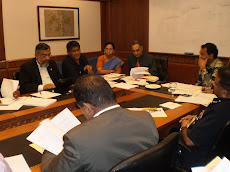


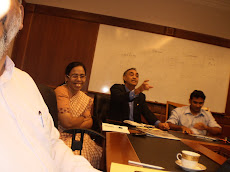

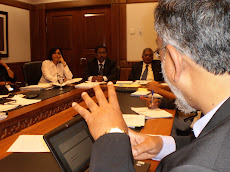
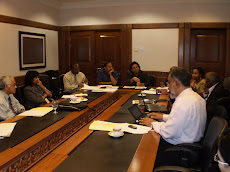
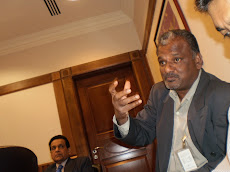
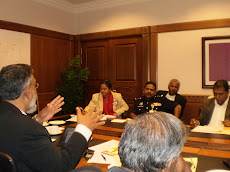
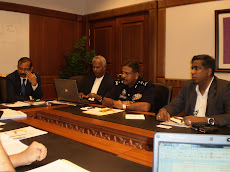

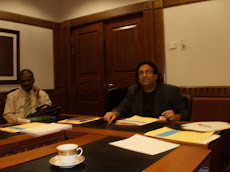
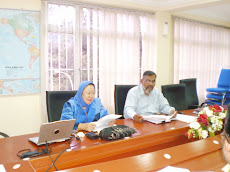

No comments:
Post a Comment